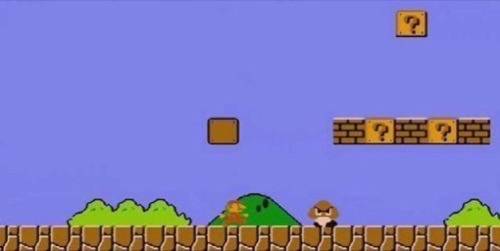Nintendo is in trouble. The Japanese gaming giant, which has long felt building pressure from mobile computing platforms, is now officially losing money. Lots of it.

Last week, the company reported an operating loss of $458 million, the first such deficit in its long history. While larger economic trends are partially to blame, it certainly doesn’t help that Nintendo is refusing to consider the one thing that could possibly save it.
Since the iPhone debuted in 2007, iOS has steadily grown as a popular gaming platform. The momentum has only continued with Apple’s annual hardware upgrades and the introduction of the iPad in 2010. At any given point in time, the “popular” tab of the iTunes App Store is practically overflowing with games.
Despite this, Nintendo has resisted developing games for iOS or Android and instead prefers to stick to its own hardware. It’s time for that to change.
Nintendo owns some of the most beloved video game franchises on the planet, starting most obviously with the Super Mario Bros. series. Even as the company has struggled to sell its newer hardware, games like New Super Mario Bros. for Wii have done phenomenally well, more than three decades after the first Super Mario game landed on the NES.
If official Super Mario and Legend of Zelda games showed up in the App Store, it’s a safe bet that they’d skyrocket up the charts pretty much instantly.
One of the first apps I paid for upon buying my iPhone four years ago was Tetris. Whereas paying more than a dollar for an iPhone app would normally give me pause, I eagerly paid $8 to download a game that I used to play endlessly on my boxy, gray Game Boy as a kid. No questions asked.
I suspect I’m not alone when I say that if other classic games were available, I’d snatch them up too.

Old Games = New Revenue Streams
Nintendo wouldn’t even have to worry about jeopardizing sales of its current games or hardware to do this. If they want to keep the latest Nintendo 3DS games exclusively on the 3DS, that’s fine. They could start by re-releasing a selection of classic NES and Super Nintendo games for iOS and Android, charge a few bucks apiece and watch many of those titles shoot up the App Store charts.
Not only could they get away with charging money for games, but they could utilize in-app purchases to unlock new features and levels, not to mention the revenue they could bring in from third-party accessories for iOS devices. An old school-style NES controller that connects to my iPad via Bluetooth? Hell yes.
If going the vintage-game route worked out, Nintendo could consider bringing on newer titles in due time. The company could continue to focus on its own hardware, which could become that much more attractive if games had some cross-platform compatibility.
No matter how awesome the new Wii U may be, I’m never going to take it on the subway with me. Even carrying around an extra handheld device like the Nintendo 3DS feels too onerous for many users, who are now sporting tiny Internet-connected computers which, in addition to housing their entire digital lives, feature a wide selection of games. Imagine if one could start a game on their Nintendo-branded console and then pick things up on their smartphone on the train.
This strategy wouldn’t be without its hurdles. Nintendo would have to deal with Apple’s revenue-sharing policies, and there may be licensing issues to contend with in many cases. Even if successful, a true mobile-gaming strategy may not plug the financial hole that now plagues the company, but it could certainly help shrink it.
The potential here is now officially too huge for Nintendo to ignore.
Lead photo by Francis Bijl.

















